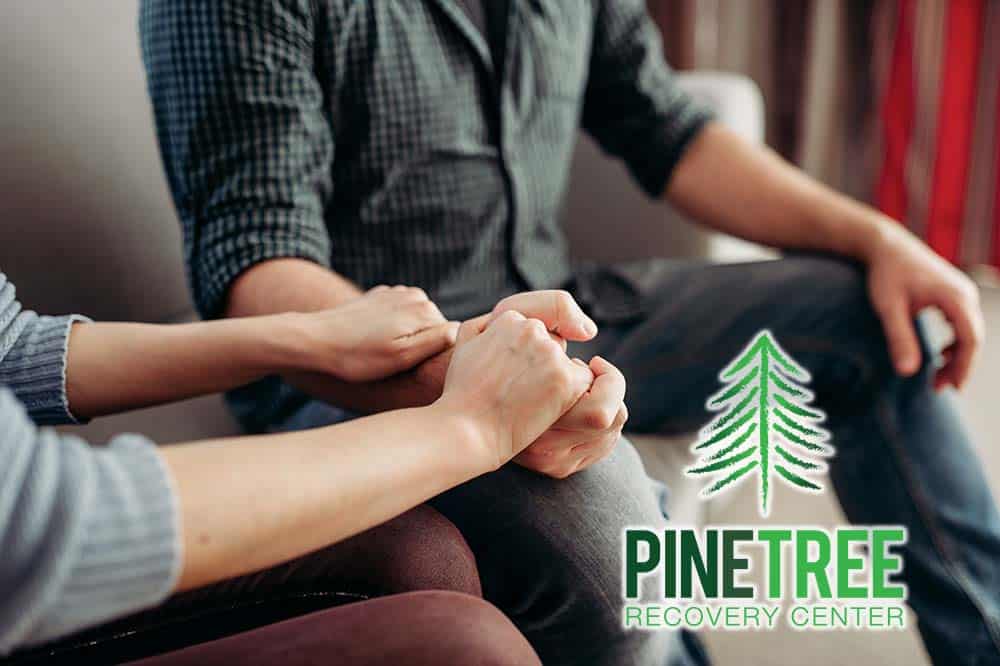Heroin is an extremely potent opioid narcotic, one that is illegal in all 50 states and has been labeled a Schedule I drug by the United States Drug Enforcement Administration. Over the course of the past several years, the rates of heroin abuse have increased significantly among men and women of all demographics, ages and backgrounds. According to the Center of Disease Control, there were nearly 494,000 American adults that reported using heroin at least once during the year 2017. Total emergency room visits in 2015 relating to heroin totaled over 81,000. Most of these visits were related to accidental heroin-related overdose. As rates of heroin-related death continue to rise in the U.S., it becomes increasingly important that those struggling with heroin abuse and addiction seek the professional help that they both need and deserve. If you or someone close to you needs help quitting and doesn’t know how, we’re available to help. At Pine Tree Detox and Recovery Center we have extensive experience dealing with heroin addicts of all ages and from all backgrounds. For more information on how we can help give us a call today, we are on standby to answer any questions that might arise.
Heroin Overdose Statistics
Statistics can be difficult to grasp, because they’re really nothing more than numbers on a page; there’s no emotional connection. The true gravity of the heroin epidemic can truly only be felt if you lose a loved one to heroin addiction, if you watch a loved one suffer or if you experience the devastation of heroin addiction first-hand. Still, the statistics are overwhelming. Take a look at the following heroin overdose statistics and try to wrap your mind around the widespread turmoil this disease has caused in the lives of hundreds and thousands of people just like you.
- It was reported that in 2015, over 15 million Americans were actively using heroin.
- The CDC reported in 2017 that 15,000 American citizens died of heroin-related overdose. This means that for every 100,000 citizens there were an average of five deaths.
- During this same year, the highest rates of overdose-related death were amongst men aged 25-44. Men aged 25-36 are at the highest risk of death by heroin overdose. Out of that same 100,000 citizens, this means that 14.8 men died on average.
- From 2010-2017 the number of heroin-related deaths increased five-fold, meaning there were five times as many deaths in 2017 as there were just seven years earlier.
- Heroin overdose increased six times between 2002 and 2015. Clearly, the numbers of overdose deaths have consistently been on the steep incline.
- In recent years, heroin overdose deaths amongst young adults aged 18-27 have increased significantly.
Heroin Addiction Recovery Statistics
Heroin addiction can be devastating, but those that seek help can recover. Here are some statistics revolving around the recovery side of things:
- Numerous studies show that the relapse rates for heroin addiction are similar to the relapse rates for other chronic illnesses, like hypertension or diabetes. If a recovering addict takes care of him or herself and continues on with a strong program of recovery, the chances of relapse are diminished significantly.
- Those who remain in inpatient heroin rehab for 30 days or more are far more likely to go on and lead lives of fulfilled, long-term sobriety.
- Those who leave inpatient rehab with a solid aftercare plan in place are significantly more likely to avoid relapse and go on to lead sober and productive lives. At Pine Tree Detox and Recovery Services we make sure that each and every one of our residents doesn’t leave without a personalized and comprehensive aftercare program, and a realistic way to ensure that all individual treatment goals are being met.
- Those who utilize medication assisted treatment to alleviate cravings in early recovery have greater success levels in maintaining long-term sobriety.
Our Heroin Detox Services Include
Signs and Symptoms of Heroin Addiction
One of the main symptoms of heroin addiction is denial – denying the truth no matter how much blatant evidence has accumulated. Because of this, it can sometimes be difficult to pinpoint a heroin addict if they aren’t being completely honest or forthcoming. Heroin addicts will lie to your face, emotionally manipulate you and steal from under your nose – not because they’re bad people, but because they have fallen victim to a powerful chronic disease. Heroin addiction has nothing to do with a lack of will-power and everything to do with actual chemical changes within the brain. Below are some signs and symptoms of heroin addiction to help you determine whether or not someone close to you is grappling with a serious disorder.
- Increased drowsiness and nodding off.
- Changes in sleep patterns.
- Changes in eating patterns, usually leading to weight loss.
- Gastrointestinal issues like nausea, vomiting and constipation.
- Harshly constricted pupils.
- Major mood swings, frequent agitation and irritability.
- In inability to focus.
- Secretive behavior and a desire to be alone.
- Frequent trips to the bathroom
- Bruising on the inner arms.
- In inability to stay true to commitments and obligations.
- Interpersonal and relationship problems.
Ready To Begin Your Heroin Detox?
We Offer A Safe & Effective Program
Don’t let Heroin addiction control your life.
Call us today and let’s get you started on the path to a better you.
Heroin Addiction Treatment
As clearly exemplified by the above-mentioned statistics, heroin addiction can be extremely deadly if left untreated. Getting a heroin addict to commit to treatment might seem like an impossible task. Those who are active in their addictions are usually violently opposed to attending inpatient drug rehab, mainly because their brains are constantly telling them that if they cease use they are going to die. It’s important to remember that addiction is a complex and baffling disease, and that the symptoms are different for everyone – however, as far as heroin addiction goes, medical detox is always a crucial first step. This isn’t because the withdrawal symptoms of heroin abuse are lethal (although they can be based on whether or not they’re medically observed), but because the chemicals in the brain are so out of whack that mental cravings will overpower everything else.
In most cases heroin withdrawal will last between one and two weeks, though post-acute withdrawal symptoms can last for up to a year or so. Post-acute withdrawal symptoms don’t usually interfere with inpatient treatment, but they can be irritating to the sufferer.
Post-acute withdrawal symptoms might include:
- Insomnia or disrupted sleep patterns.
- Profuse sweating in the night.
- Fatigue and drowsiness.
- Anxiety and/or depression.
- Stomach issues.
- Cravings.
- Mood swings, marked by irritability.
Begin Healing Now!
Have A Call With One Of Our Treatment Advisors
Don’t Suffer Any Longer
Our team of licensed physicians is able to provide non-narcotic medications that will help alleviate these symptoms, making inpatient treatment more comfortable. It’s important that those in inpatient heroin rehab are able to focus their full attention on the therapeutic care. As mentioned before, those who have struggled with heroin addiction have a far greater chance of maintaining sobriety and going on to live the productive and happy lives they deserve if they commit to at least 30 days in inpatient treatment. 30 days may seem like a lot, but it’s nothing compared to a lifetime of waking up sober, being there for your loved ones, and being able to look yourself in the mirror and say, “I’m proud of myself, and I’m happy.”
If this still seems like an unattainable ideal, we are here to help. Give us a call today and we will get you started on the road to lifelong heroin addiction recovery.
To learn more about our detox and recovery programs give us a call today, and feel free to give us a call if you’d like some support or guidance when it comes to the more difficult-to-have conversations.
Get Help Now
24/7 Call (888) 693-1751


Reviewed for accuracy by:
Randi Bruneau
LCSW, LADC, CCS
Randi is a Licensed Clinical Social Worker and Licensed Alcohol and Drug Counselor and Supervisor who has over 20 years of experience in the field of mental health and addictions. She has worked in both clinical and administrative leadership roles and also has extensive career experience in gender specific trauma treatment, crisis intervention, structural family work and substance use disorder treatment and supervision.






















